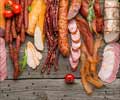Europe's main consumer watchdog called Thursday for an EU-wide ban on six food colourings which a scientific study has linked to hyperactivity in children.
Europe's main consumer watchdog called Thursday for an EU-wide ban on six food colourings which a scientific study has linked to hyperactivity in children.
"It is unacceptable to leave on the market substances strongly suspected to increase hyperactivity in children while having no added value at all except colouring food," said Monique Goyens, head of the BEUC consumers association."The European Union must place the health of its most vulnerable consumers before any other interest," she said in a statement backed by 41 interest groups.
A study published in September in the British science review, The Lancet, found that a cocktail of artificial colours and the commonly-used preservative sodium benzoate are linked to hyperactivity in children.
In the past decade, hyperactivity has -- apparently -- ballooned into serious proportions in some countries, stirring controversy along the way.
US doctors commonly see it as a medical condition (attention-deficit hyperactivity disorder, ADHD) and prescribe a potent drug, ritalin, to treat it.
Other experts speculate that hyperactivity has social causes such as home instability and poor education, and say use of powerful, mind-altering drugs is dangerous.
Advertisement
The six food colourings in question are Tartrazine (EU reference E102), Quinoline Yellow (E104), Sunset Yellow (E110), Carmoisine (E122), Ponceau 4R (E124) and Allura Red (E129).
Advertisement
SRM/L











